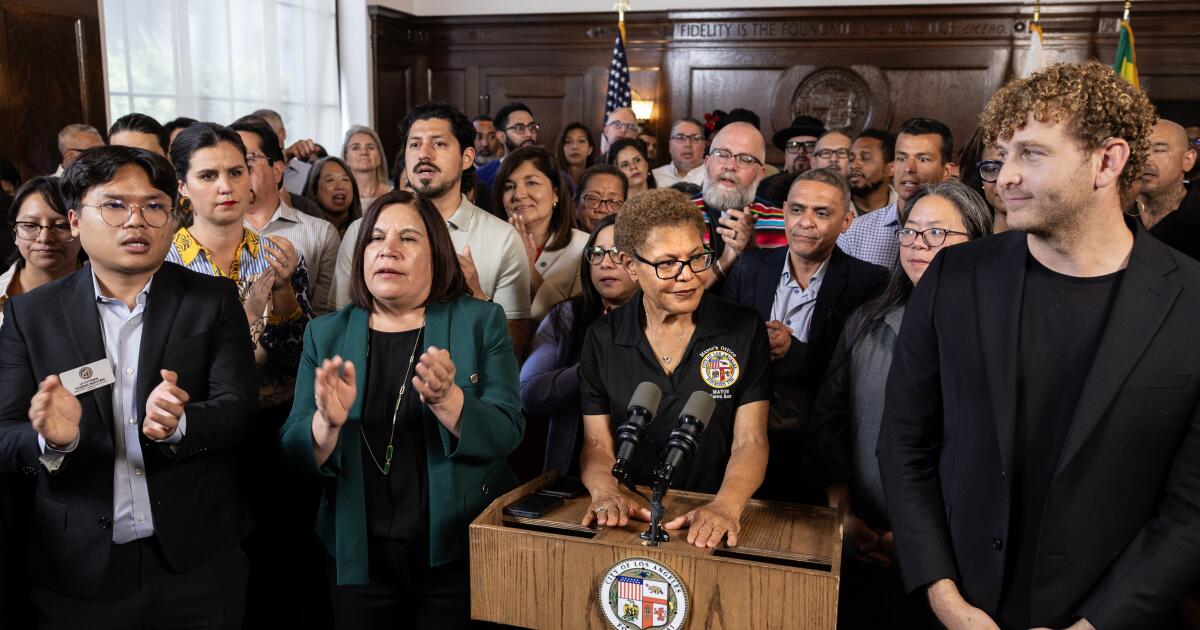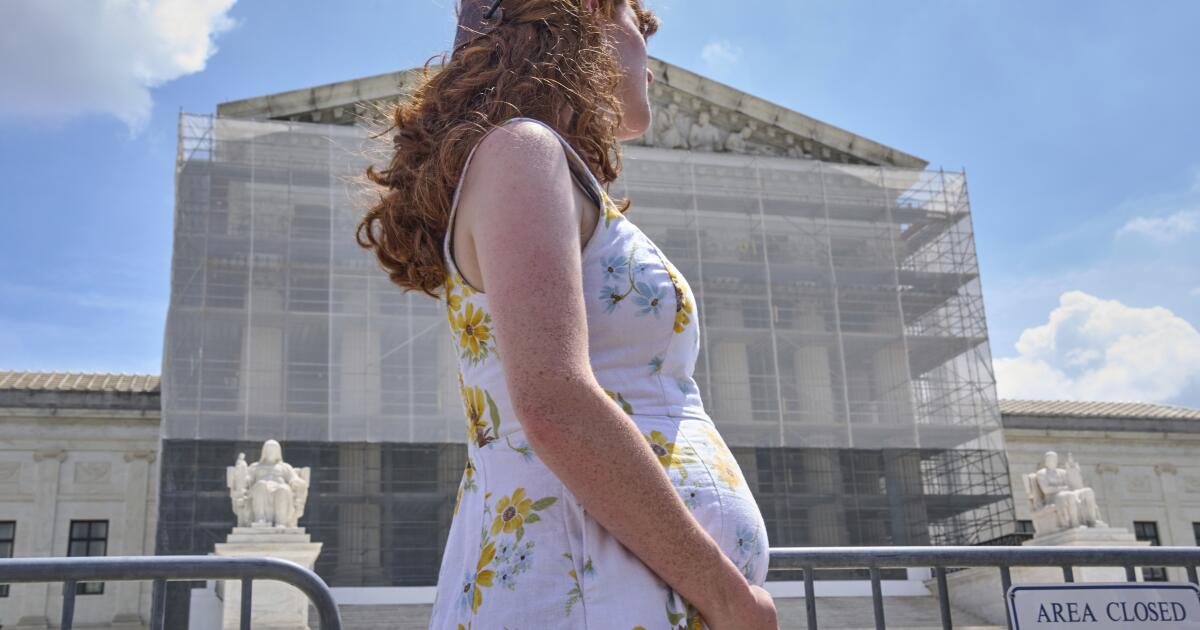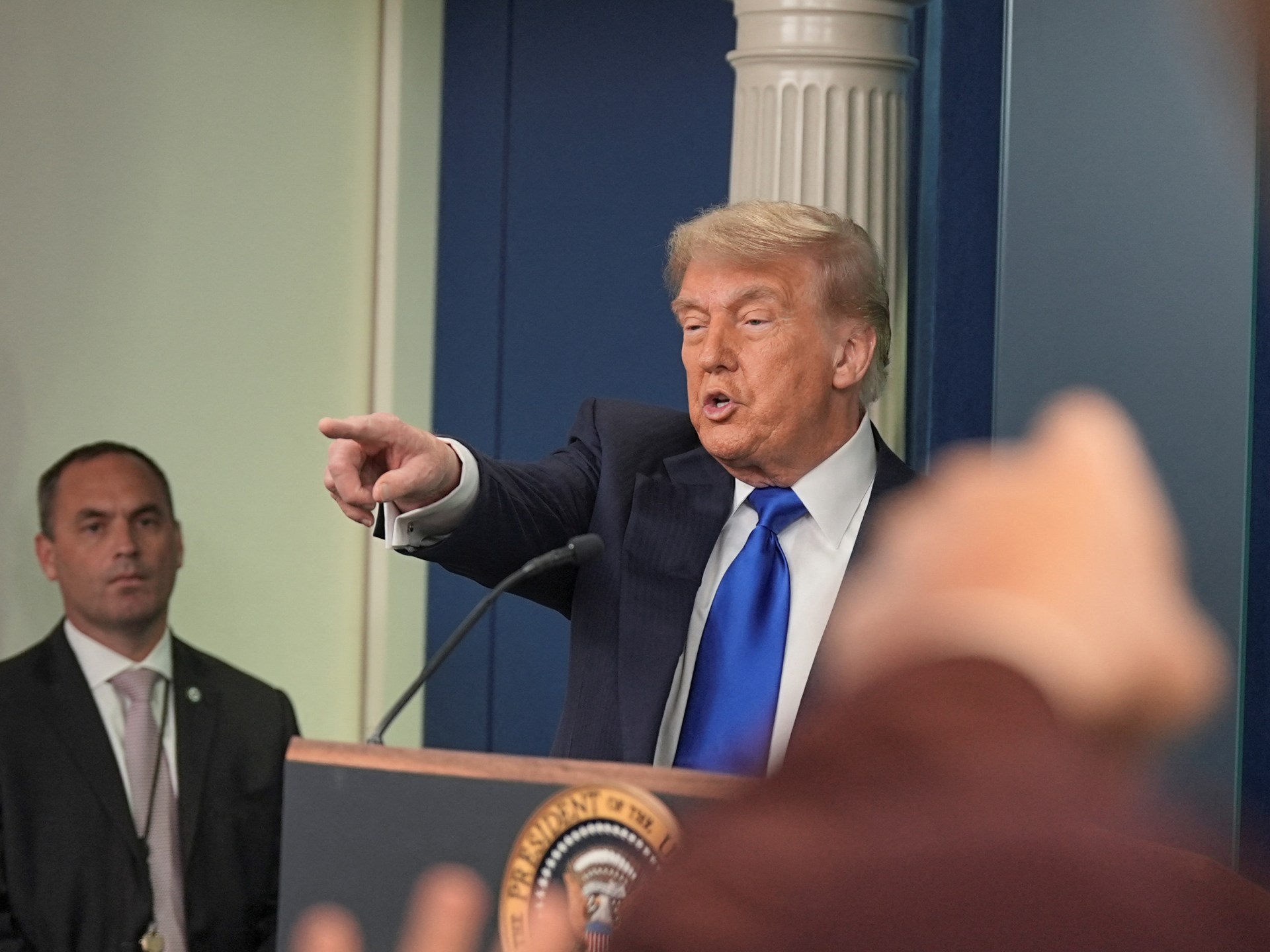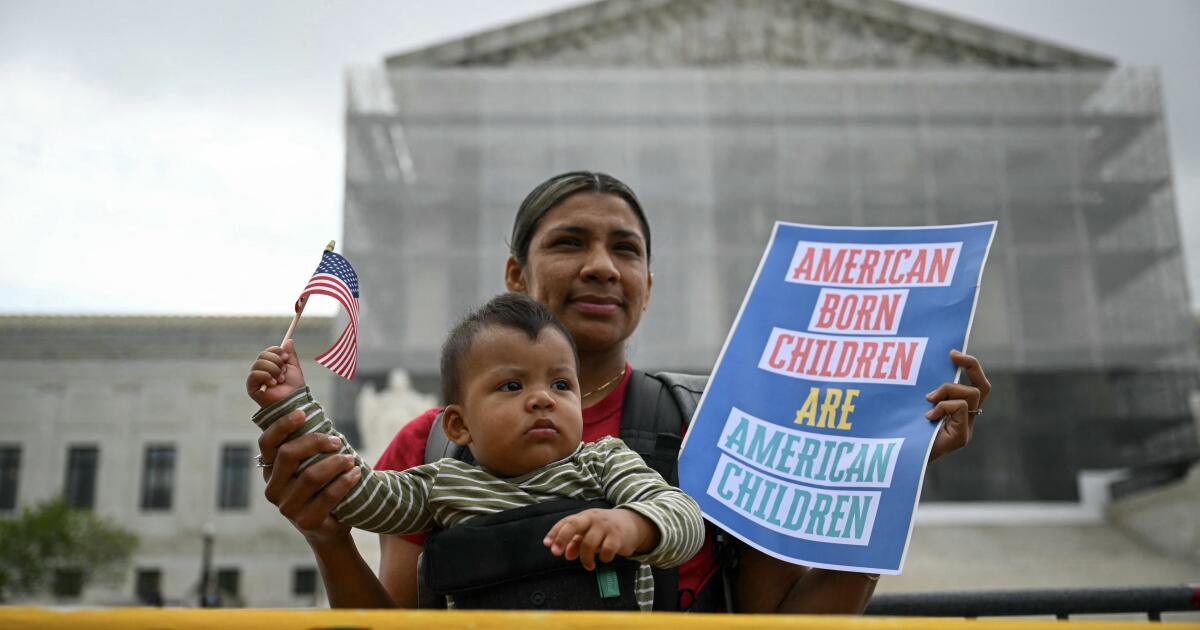Bass says Trump is waging ‘an all-out assault’ against Los Angeles
Mayor Karen Bass fired back at the Department of Justice on Tuesday, calling its lawsuit against her city part of an “all-out assault on Los Angeles” by President Trump.
Bass said she and other city leaders would not be intimidated by the lawsuit, which seeks to invalidate sanctuary policies that prohibit city resources from being used in federal immigration enforcement in most cases.
The mayor, appearing before reporters at City Hall, assailed federal agents for “randomly grabbing people” off the street, “chasing Angelenos through parking lots” and arresting immigrants who showed up at court for annual check-ins. She also took a swipe at Trump’s Deputy Chief of Staff Stephen Miller, a Santa Monica native widely viewed as the architect of the sweeping immigration crackdown.
“We know that U.S. citizens have been detained, so it’s basically indiscriminate,” Bass said. “It’s a wide net they have cast in order to meet Stephen Miller’s quota of 3,000 people a day being detained around the nation.”
L.A.’s mayor has been at odds with the Trump administration since early June, when federal immigration agents began a series of raids across Southern California, spurring protests in downtown Los Angeles, Paramount and other communities. Her latest remarks came one day after Trump’s Department of Justice sued the city over its sanctuary law, alleging it has hindered the federal government’s ability to combat “a crisis of illegal immigration.”
In the lawsuit, federal prosecutors accused the City Council of seeking to “thwart the will of the American people,” arguing that Trump won his election on a platform of deporting “millions of illegal immigrants.” They also alleged that L.A.’s refusal to cooperate with federal immigration authorities had triggered “lawlessness, rioting, looting, and vandalism” during the anti-ICE demonstrations.
White House spokesperson Abigail Jackson pushed back against Bass’ assertions, saying in an email that Bass should “thank President Trump for helping get dangerous criminals off L.A.’s streets.”
“The only ‘assault’ being committed is by Bass’s radical left-wing supporters who are assaulting ICE officers for simply doing their job and enforcing federal immigration law,” Jackson said. “Thanks to inflammatory rhetoric like Bass’s, ICE officers are facing a 500% increase in assaults.”
Elected officials in Los Angeles, Pasadena, Huntington Park and other communities have decried the raids, saying they are tearing families apart, disrupting public life and choking off economic activity. In some communities, July 4 fireworks shows have been canceled for fear of ICE raids destroying the events.
Even some who support Trump have begun to voice concerns. Last week, six Republicans in the state legislature sent Trump a letter urging him to focus on targeting violent criminals during his immigration crackdown, saying the raids are instilling widespread fear and driving workers out of critical industries.
From June 1 to June 10, 722 people were arrested by immigration agents in the Los Angeles region, according to Immigration and Customs Enforcement data obtained by the Deportation Data Project at UC Berkeley Law. A Times analysis of the figures found that 69% of those arrested during that period had no criminal conviction, and 58% had never been charged with a crime.
In L.A., the sanctuary ordinance bars city employees from seeking out information about an individual’s citizenship or immigration status unless needed to provide a city service. They also must treat data or information that can be used to trace a person’s citizenship or immigration status as confidential.
Trump has been trying to strike down the state’s sanctuary policies almost since they were enacted — largely without success.
In 2019, the 9th Circuit Court of Appeals rejected a federal challenge to Senate Bill 54, which barred local police departments from helping federal agencies take custody of immigrants being released from jails. The Supreme Court declined to take up the case the following year.
In a separate case, the 9th Circuit ruled that the Trump administration may not force the city of L.A. to help deport immigrants as a condition of receiving a federal police grant.
City Councilmember Tim McOsker, who worked for several years in the city attorney’s office, said Tuesday that he views the Trump lawsuit as a publicity stunt.
“There are over 100 years of case law that tell us this is a baseless lawsuit,” he said.
Times staff writer Rachel Uranga contributed to this report.



